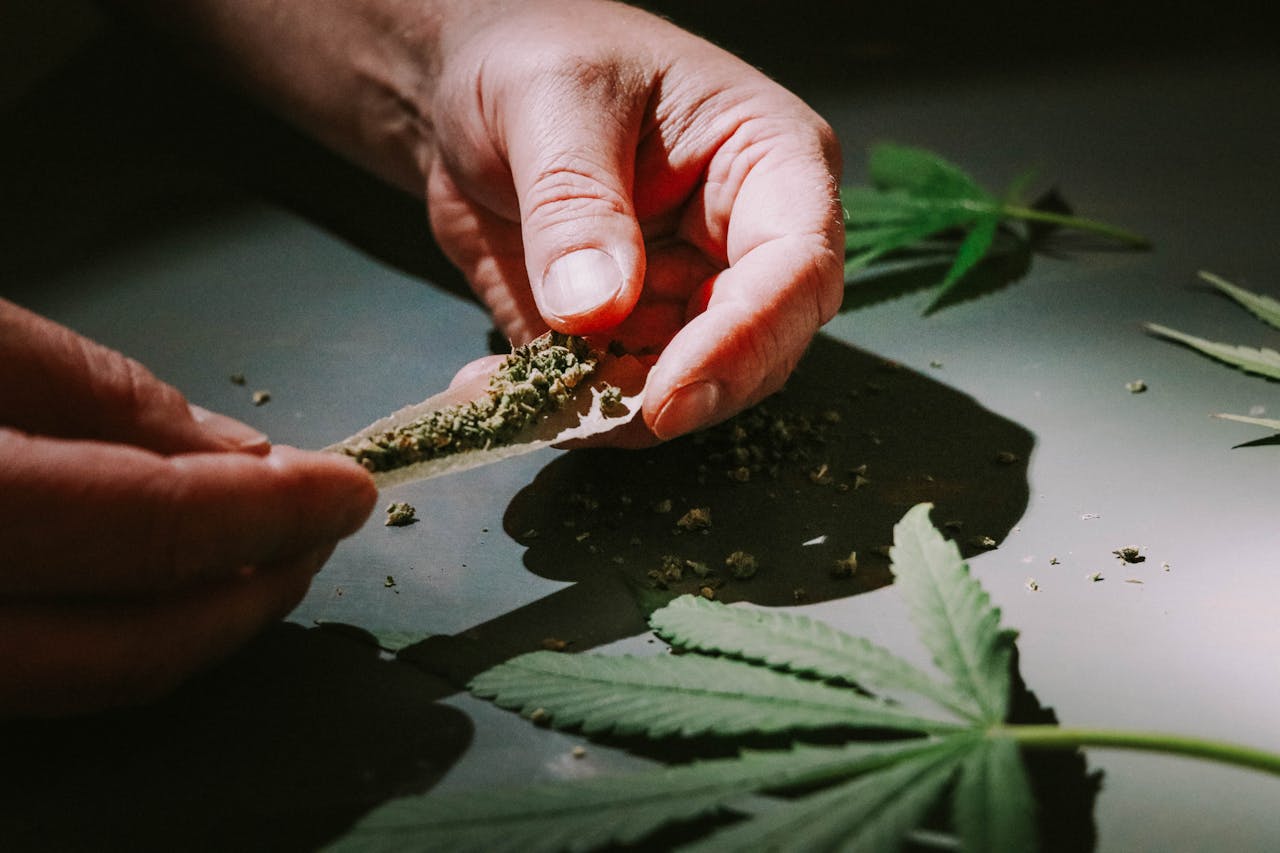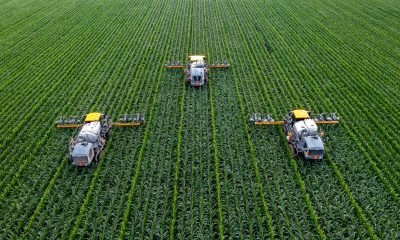Cannabis
Brazil and the Medical Cannabis Revolution, an Overview of Growth and Challenges
Brazil’s medical cannabis sector treated 672,000 patients in 2024, a 56% increase from 2023, generating R$853 million in revenue. Growth stems from regulatory advances, social acceptance, and expanded offerings. Challenges persist in costs and distribution, but local production and research promise future market expansion, positioning Brazil as a leader in Latin America’s cannabis-based healthcare.

In the last year, Brazil has taken a significant step towards the integration of medical cannabis into its health system, reaching a total of 672,000 patients treated with products derived from this plant, representing a growth of 56% compared to 2023.
This increase reflects the growing social and scientific acceptance of cannabis as a valid and effective therapeutic option for a wide variety of health conditions. This article seeks to analyze the factors that have driven this phenomenon, explore the persistent challenges, and assess the future prospects of the medical cannabis market in Brazil.
An Expanding Market: The Growth of Medical Cannabis in Brazil
Brazil, a country known for its size and geographic diversity, has experienced a remarkable transformation in the field of cannabis-based medicine. According to the latest report from Kaya Mind, the number of patients treated with medicinal cannabis has grown exponentially, reaching more than 80% of the country’s municipalities. This phenomenon is not a coincidence, but the result of a process that involves regulatory advances, greater awareness of the benefits of the plant, and a market that is adapting to the needs of patients.
In terms of revenue, the medical cannabis sector in Brazil generated R$853 million in 2024, marking a 22% increase over the previous year. According to projections, by 2025, this market could surpass the R$1 billion barrier, consolidating itself as one of the most promising areas in the health sector in Brazil. For the most part, growth has been driven by the increase in product offering, which currently exceeds 2,180 types of drugs available to treat various conditions, from chronic pain to neurological disorders.
Regulatory Advances: How Has Brazil Facilitated Access to Medical Cannabis?
A crucial factor for the growth of the market has been the evolution of public policies and judicial decisions related to the use of cannabis. In 2024, Brazil experienced a key moment in its recent history: the Supreme Federal Court approved the legalization of cannabis cultivation for medical purposes, which allowed more national companies to produce locally, reducing costs and expanding the availability of products.
This shift has attracted 413 international companies that now export cannabis products to Brazil, further diversifying the market and making patients have access to a wider range of therapeutic options. In addition, these companies have encouraged greater investment in research and development, contributing to the innovation of new formulas and more effective products.
However, despite these advances, Brazil still faces significant barriers in terms of product distribution and availability. Approximately 47% of patients rely on product imports, which remains a challenge due to restrictive regulations and the high costs of imported products. Pharmacies account for 31% of sales, while 22% of patients turn to associations that offer alternatives at more affordable prices.
Stories of Overcoming: Testimonies from Patients and Families
The testimony of patients who have turned to medicinal cannabis in Brazil shows a transformative reality. One of the main actors in this change is Jonadabe Oliveira da Silva, vice president of TO Ananda, an association in Tocantins that provides support to patients and families who use medicinal cannabis. Silva relates how even people who were initially reluctant to this therapeutic alternative have begun to recognize its benefits, especially those who have faced years of chronic pain and unsuccessful conventional treatments.
TO Ananda, which has been in existence for two years, has played an important role in educating and supporting patients, working closely with institutions such as the Public Defender’s Office and the Oswaldo Cruz Foundation (Fiocruz). This support network is crucial for patients who do not have access to products due to high costs or lack of information about their availability. In addition, the organization has plans to expand its operations in 2025, seeking to strengthen its collaboration with laboratories and universities, which could improve the product offering in the country.
Challenges in Access and Regulation: Obstacles that Still Persist
Despite progress, the path to more equitable and widespread access to cannabis treatments remains tortuous for many patients. Although the regulatory framework has improved, legal restrictions and the high cost of treatments remain significant barriers. Many patients are forced to turn to non-profit associations or import products through informal channels, which increases costs and, in some cases, compromises the quality of the product received.
Furthermore, Brazilian legislation has been slow to adapt to market needs, which has created uncertainty among suppliers and consumers. This also affects doctors, many of whom are not yet fully trained in the use of medicinal cannabis, limiting their ability to prescribe these products effectively.
Future Outlook: A Market with Potential for Continued Growth
Despite these challenges, the future of medical cannabis in Brazil looks promising. Market growth in 2024 is an indication that the trend will continue in the coming years. Expanded legislation is expected to allow for local production, which will reduce product costs and allow for wider distribution. As patients gain confidence in treatments and new formulas are developed, the medical cannabis market in Brazil could become one of the largest in Latin America, if not the world.
With the growing openness to research and development of new therapeutic applications, Brazil has the opportunity to position itself as a leader in the medicinal cannabis sector in the region. The integration of cannabis into conventional medicine, together with the support of civil organizations and innovative companies, will mark a new stage in the history of health in Brazil.
Brazil as a Reference in the Medicinal Cannabis Market
Brazil has come a long way in expanding medical cannabis, and although there are still obstacles to overcome, progress is undeniable. With a constantly growing market, greater social acceptance and an evolving regulatory environment, Brazil is positioning itself as a benchmark in Latin America and beyond. The outlook for the future is positive, but it is essential to continue promoting access, education and support policies so that more patients can benefit from cannabis treatments.
The road ahead is uncertain, but what is certain is that medicinal cannabis is here to stay, offering new opportunities and solutions for those who need it most.
__
(Featured image by Elsa Olofsson via Pexels)
DISCLAIMER: This article was written by a third party contributor and does not reflect the opinion of Born2Invest, its management, staff or its associates. Please review our disclaimer for more information.
This article may include forward-looking statements. These forward-looking statements generally are identified by the words “believe,” “project,” “estimate,” “become,” “plan,” “will,” and similar expressions. These forward-looking statements involve known and unknown risks as well as uncertainties, including those discussed in the following cautionary statements and elsewhere in this article and on this site. Although the Company may believe that its expectations are based on reasonable assumptions, the actual results that the Company may achieve may differ materially from any forward-looking statements, which reflect the opinions of the management of the Company only as of the date hereof. Additionally, please make sure to read these important disclosures.
First published in AmericaRetail & Malls. A third-party contributor translated and adapted the article from the original. In case of discrepancy, the original will prevail.
Although we made reasonable efforts to provide accurate translations, some parts may be incorrect. Born2Invest assumes no responsibility for errors, omissions or ambiguities in the translations provided on this website. Any person or entity relying on translated content does so at their own risk. Born2Invest is not responsible for losses caused by such reliance on the accuracy or reliability of translated information. If you wish to report an error or inaccuracy in the translation, we encourage you to contact us

-

 Impact Investing2 weeks ago
Impact Investing2 weeks agoEU Backs 90% Emissions Cut by 2040 and Delays ETS2 Rollout
-

 Markets6 days ago
Markets6 days agoMarkets, Jobs, and Precious Metals Show Volatility Amid Uncertainty
-

 Biotech2 weeks ago
Biotech2 weeks agoDNA Origami Breakthrough in HIV Vaccine Research
-

 Cannabis3 days ago
Cannabis3 days agoAI Can Mimic Psychedelic Experiences but Cannot Truly Feel Them, Study Warns























